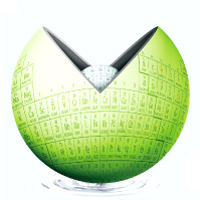
Published for geochemistry community from Geochemical Society of Japan.
Variations in soil organic carbon contents and isotopic compositions under different land uses in a typical karst area in Southwest China
Geochemical Journal, Vol. 49, No. 1, P. 63-71, 2015
ABSTRACT
Land use changes can affect soil carbon storage in terrestrial ecosystems by altering either the biotic or the abiotic processes involved in carbon cycling, such as the adsorption of carbon on soil minerals. In this study, the organic carbon contents and their stable carbon isotopic compositions (δ13C) of five soil profiles under different land uses in the Maolan karst region in Southwest China were analyzed. Four non-forest samples from the karst were selected and examined to determine whether farmlands or grasslands that were converted from forestland were more effective in sequestering carbon in soils. The soil organic carbon (SOC) contents decreased in the following order: virgin forest, burnt grassland, shrubland, grassland, and farmland. However, no differences were observed in the δ13C values at the bottom of the five profiles, which indicated that most of the soil organic carbon was derived from the original virgin forest. The percentages of SOC that resulted from C4 plants in the virgin forest were significantly lower than the percentages in the other plots, while the percentages of SOC that resulted from C3 plants in the virgin forest were significantly higher than the percentages in the other plots. The δ13C values in the topsoils of the various profiles decreased in the following order: burnt grassland, farmland, grassland, shrubland, and virgin forest. From the surface to the base of the farmland profiles, little variation occurred in the δ13C values of the SOC (from -25.1 to -29.1‰). This variation in the δ13C values of the SOC in the surface soils was associated with changes in the vegetation cover. In addition, our results suggest that the plant functional type is important for controlling the depth-related changes in the SOC contents and the δ13C values of the SOC.KEYWORDS
soil organic carbon, stable carbon isotope, karst areas, Southwest China- Published : 2015-01-20
- Released on J-STAGE : 2015/02/05
- Received : 2014/03/21
- Accepted : 2014/09/04
- DOI : https://doi.org/10.2343/geochemj.2.0331
- J-STAGE URL : https://www.jstage.jst.go.jp/article/geochemj/49/1/49_2.0331/_article/-char/ja
- J-Online ISSN: 1880-5973
- Print ISSN : 0016-7002
- ISSN-L : 0016-7002
All Issues
- Vol.59, 2025
- Vol.58, 2024
- Vol.57, 2023
- Vol.56, 2022
- Vol.55, 2021
- Vol.54, 2020
- Vol.53, 2019
- Vol.52, 2018
- Vol.51, 2017
- Vol.50, 2016
- Vol.49, 2015
- Vol.48, 2014
- Vol.47, 2013
- Vol.46, 2012
- Vol.45, 2011
- Vol.44, 2010
- Vol.43, 2009
- Vol.42, 2008
- Vol.41, 2007
- Vol.40, 2006
- Vol.39, 2005
- Vol.38, 2004
- Vol.37, 2003
- Vol.36, 2002
- Vol.35, 2001
- Vol.34, 2000
- Vol.33, 1999
- Vol.32, 1998
- Vol.31, 1997
- Vol.30, 1996
- Vol.29, 1995
- Vol.28, 1994
- Vol.27, 1993
- Vol.26, 1992
- Vol.25, 1991
- Vol.24, 1990
- Vol.23, 1989
- Vol.22, 1988
- Vol.21, 1987
- Vol.20, 1986
- Vol.19, 1985-1986
- Vol.18, 1984
- Vol.17, 1983
- Vol.16, 1982
- Vol.15, 1981
- Vol.14, 1980
- Vol.13, 1979
- Vol.12, 1978
- Vol.11, 1977
- Vol.10, 1976
- Vol.9, 1975
- Vol.8, 1974
- Vol.7, 1973
- Vol.6, 1972-1973
- Vol.5, 1971
- Vol.4, 1970-1971
- Vol.3, 1969-1970
- Vol.2, 1968
- Vol.1, 1966-1967
Current Issue:
Stats:
Impact Factor: 1.6 (2024)
Submission to final decision: 9.6 weeks (2022)




